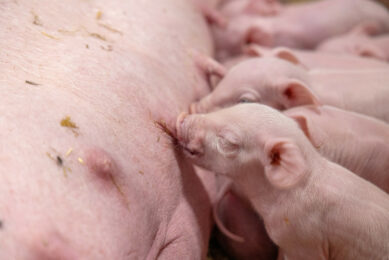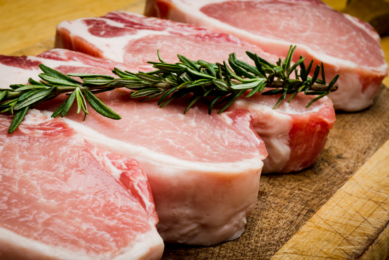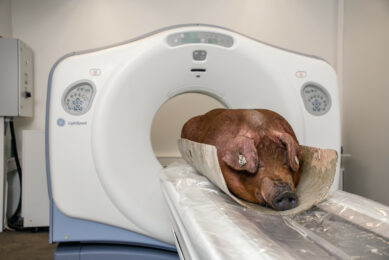New technical terms (I): Epigenetics

Epigenetics, what does it mean? Columnist John Gadd explains in his latest column what it is. Even after years of reading scientific papers John sometimes needs to look up a word or two himself.
Way back in 2003 at the end of my first pig textbook I compiled a glossary of 425 technical terms to do with pigs. I was surprised how many there were. Even so, in my third book, I had to extend this list to 500. I have received several comments on the idea such as “Strange that no-one writing a pig textbook has thought of this before.” And one producer stopped me at a pig expo saying, “Thought it was worth buying your book just for the technical terms alone!” In thanking him, I ruefully replied “Hope you’ll have time to look through the other 556 pages as well!”
An avalanche
These technical and scientific terms continue to rain down on us, and even my list of 500 needs updating again. “Really? But what practical pig farmer is going to be bothered with such technicalities?,” you may well ask.
“Anyway, we don’t have the time to read the scientific journals.” But open any decent pig magazine these days and their worthy contributors of technical/scientific articles pepper them with the new words. They must assume either that we know what they mean – or don’t want to give the impression that they are patronising us. But, dear scientist, quite a few of us don’t know – or are not sure. Or haven’t had time to find out – same difference. Even myself, reading scientific papers for 45 years, still have to look up one or two definitions so as to make sure I am on the right wavelength.
Epigenetics – what are they about?
First, that prefix ‘epi-‘. It helps if you know what that means. Some are familiar such as epidemic, epilepsy, episode, etc., but ‘epi-‘ crops up everywhere in science in various forms. ‘Epi’ comes from the Greek. In science it describes ‘upon’, ‘near to’, ‘associated with’. So epigenetics – a new and very important area where pigs and poultry are concerned, and of which we are going to hear much from now on – is associated with hereditable changes in the way the genome works.
Genome, by the way, is the complete inventory of hereditary traits in a half-set of chromosomes. Or, in layman’s terms, all the genes in an organism. This leads on to environmental and nutritional factors which can change the way genes are ‘expressed’, i.e. the way they work.
Environmentally how an animal is managed in early life has an effect on the way its genes work for the rest of its productive life. Easy enough to understand with vulnerable neonates and weaners, but what about sows? How the young proto-breeding female is managed from her birth could have an effect on the many desirable (or undesirable) production traits throughout her breeding life – even up to how long she remains productive before she needs to be culled. Could this be involved when the occasional sow seems to go on and on productively? At Taymix we had our ’12/12 sow’ of fond memory who continued popping out around twelve right up to her 12th parity!
Also I’ve always been a believer that the served sow, and especially the excitable or nervous gilt, should be kept quiet and contented during the implantation period after service, assuming hormones were at work, in that stress at this time encourages the negative ones. But could epigenetics be involved too – the way she is managed at this time influencing her gene expression, as to litter size for example, and several other beneficial ones?
With regard to nutrition, the same concept applies. The uterine environment during gestation is vital to the optimal development of the sow’s offspring – we know that. But what we feed the sow and possibly the way we feed her during gestation might influence the desirable traits in not only her subsequent performance, but that of her offspring to be born, right up to the time they are shipped – maybe on into their carcass quality as well? I grew up with the idea that in gestation the sow was on ‘nutritional holiday’. After the nutrient density needed in lactation to prevent her ‘milking off her back’ in feeding that demanding litter, one could ease up on the nutrients in the dry-sow period. It was cheaper too! But epigenetics may be leading into a new ball-park of specially designed gestation food so as to kickstart her genes into ‘better-programmed’ embryos providing future benefits in her offspring – even as far as disease resistance? Far-fetched? But some nutritionist-geneticists believe we are moving from possible to probable in this respect.
Epigenetics – many fascinating discoveries to come, so ears to the ground!











